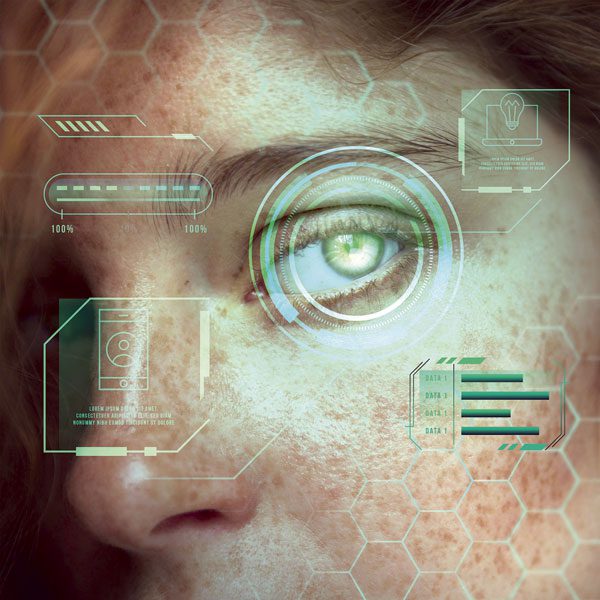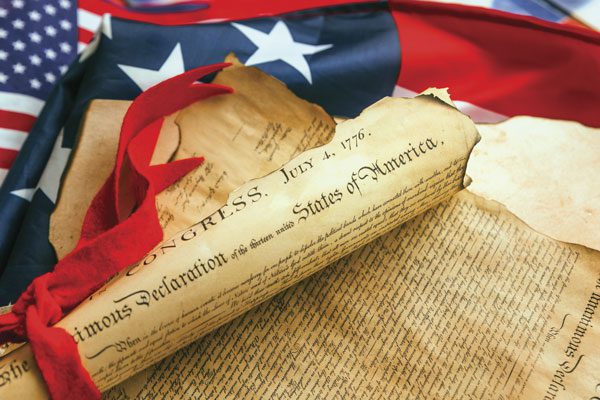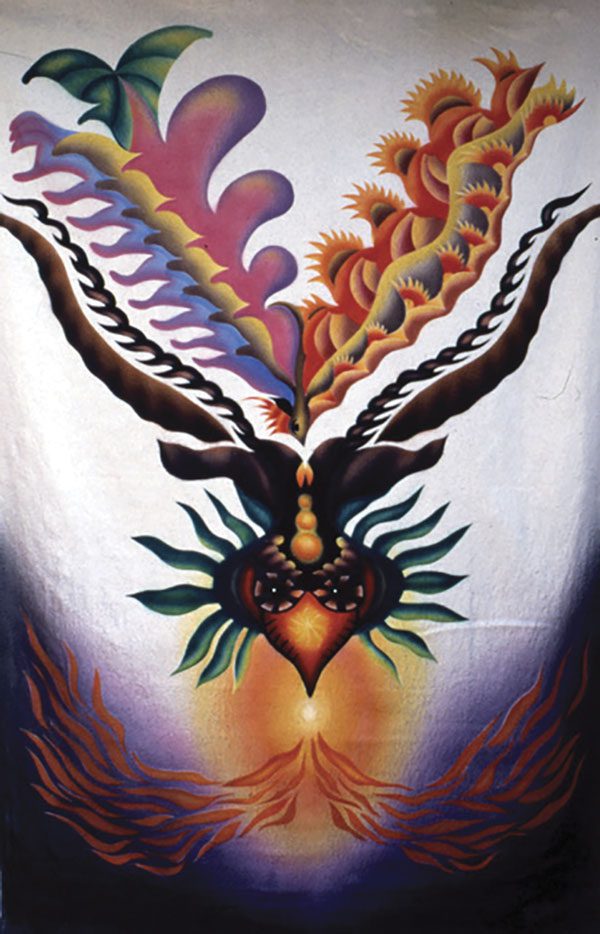
My name isn’t important because I’ll soon have a new one once my tracking chip is removed. Although I was born July 23, 2004, today, July 23, 2029, is truly my birthday. I spent the past two years incarcerated in what the authorities called the Home for Dissidents. It’s really a prison for those who disagree with oppressive MAGA government regulations that have taken away our freedoms. I escaped with the help of my friend Nancy who had forged some documents. I think the Home was happy to be rid of me. We headed south and now I’m here with Nancy in the Zar hotel on the outskirts of Culiacan in Mexican state of Sinaloa. She spread a large towel on the floor, and we waited for almost two hours.
There was a knock at the door and Nancy opened it and looked at me. “This is Alberto.”
He entered and didn’t even say hello. Instead, he said calmly, “Take your shirt off, lay face down on the towel, and stretch your arms out above your head. Put a piece of the towel in your mouth. This is going to hurt like hell.”
“Can’t you do this on the bed? And give me something? An aspirin, maybe?”
“Don’t be silly, man. I’m a cutter not a doctor. And it’s too hard to clean the blood off the bed. And aspirin’s a blood thinner.”
My Mexican uncle, Gregorio, told me he traveled to Culiacan often because of his importing business. I had never even heard of this town until my uncle told me about it. Apparently, Culiacan is also well-known as a center for the Sinaloa Cartel.
In 1990, my uncle had gone to the United States legally when he was eighteen to study engineering in Tucson. He started a group that advocated against implanting tracking chips in babies. They believed that monitoring every move each person makes was immoral and that locking people like me away from society and labeling them dissidents when all they wanted was the freedom to move without being monitored by the government.
Uncle Gregorio said the United States had become an angry, oppressive country. In Mexico he moved freely under the protection of the cartel that smuggles drugs into the United States. He laughs at the government’s feeble attempts at an anti-drug war. “If there was no market, there would be no drug smuggling.”
My girlfriend Nancy and I had driven from Tucson south to Nogales, crossed the border, and spent the night in Navajoa. Another half-day drive brought us to the outskirts of Culiacan and the hotel just off the main highway. The hotel has a large open foyer with a tile floor. The desk clerk nodded at us and Nancy said something to him in Spanish. He pointed to the stairs, and we went up to a room on the second floor. Nancy speaks fluent Spanish. The Spanish I learned from Uncle Gregorio is decent, but I sometimes have trouble understanding people.
Nancy told me she had done this herself the year before.
I held her hand. “I’m glad you’re here.”
“I couldn’t let you go through this by yourself.”
Al kneeled next to me and took a scalpel-like tool from his bag and something that looked like a pair of stainless-steel pliers with a curved tip. Shorter than I am, he stood about five feet eight and wore surgical gloves and a face mask around his neck. He had a bushy turned-down-at-the-mouth mustache and he seemed normal in every way except one. He had no earlobes. The scars at the bottom of his ears indicated his lobes had been surgically removed.
I did what he said.
“¿Qué es eso?” I looked at the evil-looking tool.
He slipped the mask over his nose and mouth. “You don’t want me to stick my fingers in the cut, do you? Don’t worry. They’re sterilized. Just lay [sic] still. I’m doing this as a favor to your uncle. Just lay [sic] as still as you can and keep the end of the towel in your mouth.”
Nancy stood in the doorway. “Be brave. It’ll be over before you know it.”
I saw the tears in her eyes as she turned away.
I felt something cold being rubbed on the back of my shoulder just above my shoulder blade and then a little pressure. Then the pain. I bit the towel to muffle my cry. I’ve had pain before, like the time I got a big wood splinter under my fingernail. It hurt like hell when a doctor pulled it out, but then the pain subsided. That’s what most pain is like. It starts out strong and lasts for a few seconds and then gets less. This one was different. It didn’t subside. It was a continuous screaming pain. I could feel his fingers stretching the sides of the cut and then the cold pliers being inserted. I kept gasping for breath like I had jumped into ice cold water. Tears streamed from my eyes. Wanting an end to the pain, I would have welcomed death.
“Lo tengo,” Alberto announced. “You’re free.”
I could feel him pulling the sides of the cut together and he said he would hold it together with butterfly bandages. The pain subsided finally. He used some soap and water to wash the blood and stuff from my back and sprayed something cold. It stung but not as bad as the cutting.
“You can sit up now. Look at this.”
I raised myself up with one elbow on the bloody towel and wiped my face with my hand. He showed me the tracking chip smaller than the size of a dime. I knew freedom for the first time in my 19 years. Now the government would never know where I went or what I did. “Damn. How’d they get all my information in that little thing?”
“Pequeño? Little? This is one of the big ones. The newer ones are smaller than the head of a pin. I must use a magnifier to dig them out.”
I had my Uncle Gregorio to thank for getting me to this hotel. He had become one of the growing number of people who’d had their chips removed.
He wrote articles in underground magazines against those he called immoral criminals in the MAGA congress. They passed laws to monitor people’s behavior and allowed unelected people access to all our personal data. He believed that if the government continued in this way, the people would have no freedom. The implanted chips would be used to control people, not just to monitor them. The Neo-Fascist government had passed the Safety and Security Act of 2017, part of the revised Patriot Act, which required every newborn to have a tracking chip implanted along with a social security number tattooed on the bottom of one foot. The Neo-Fascists had lied to people and convinced enough of them with propaganda to give up a little freedom for safety and welfare. They quoted former President Obama who had said people could not have 100% freedom and 100% safety.
The move toward this draconian security started just after the attacks on the Twin Towers in New York on September 11, 2001. The security panic was increased with each terrorist attack. After the marathon bombings in Boston and the terrorist attacks in Garland, Texas, and San Bernardino, California, Edward Snowden, a former NSA intelligence contractor, leaked classified documents revealing the existence of global surveillance programs. People understood that phone calls and internet sites had been monitored by the government for years.
Unfortunately, the majority of the people didn’t seem to care, because government wiretapping and monitoring had not affected their lives significantly. Some protested, but they were soon silenced by the majority. And like most protests, they were short lived. People were more worried about having jobs, paying mortgages or rent, and buying food. The Supreme Court, which had granted person status to corporations, ruled five to four in favor of national medical record keeping. And had voted six to three to allow the president absolute immunity from criminal liability for official acts.
The Health Insurance Portability and Accountability Act established digital medical records, and the Chip Implantation Act required all children and adults to have chips implanted as part of national security. Foreign visitors were fitted with tamper-proof removable microchips which always monitored their whereabouts and rendered them unconscious three days after their visas expired.
With my implanted chip, the government had tracked my every move for years. The chip carried more than my medical history. It had my complete identification and an enhanced GPS. Homeland Security employed thousands of people to sit at banks of monitors. Someone could tell where every person was at any moment and what he or she was doing. Someone was responsible for tracking a thousand people as well as me. My tracker knew where I went to college, what grades I had earned, where I traveled. They knew when I went to the store and probably what I bought. I think they even knew when I used the toilet. They certainly knew I was here and the location of this hotel, but since it was in Mexico, there was nothing they could do except arrest me if and when I returned to the United States. But now no one will ever know.
The cutter picked up the towel and put it in his bag with his tools. It was easy to clean the small amount of blood from the tile floor so there would be little trace of this activity unless someone sprayed the floor with luminol, which would cause the trace to fluoresce a pale blue color.
But every tracking chip had to be accounted for. Alberto said he would reimplant my chip in a dog or cat. He told me he knew about a few chips that had been reimplanted in mice.
Nancy took my hand and helped me to the bed. A few years older than me, she wore a tank top and had a tattoo on her back which made her scar almost invisible unless you looked closely. She kissed me tenderly on the lips. I started to get aroused despite the pain. She shook her head. “Maybe later.” Then she smiled, smoothed my hair, put her cool hand on my cheek, and whispered, “Happy Birthday.”
Then she looked at Alberto. “Don’t you think his cut needs to be covered?”
“Doesn’t need a bandage. I sprayed it with a clotter to stop the bleeding and liquid New Skin. When he has his shirt on, no one’ll see the scar.”
He looked at me. “Don’t ever take off your shirt in public. That scar is a giveaway and you’ll be reimplanted with a chip that no one will be able to remove.”
The MAGA director of the FBI had special agents arrest people accused of removing their chips. Doctors were instructed to reimplant chips inside a major organ like the liver or kidneys. A few people who had been reimplanted like that had committed suicide, but most had resigned themselves to a life of scrutiny and depression, going through life like germs under a microscope.
Uncle Gregorio came the next day to help me get ready to travel. I had a little pain when I lifted my arm. Nancy planned to come with us on our trip back to the United States and up to the Oregon coast city of Eugene. An enclave of people called chippers lived there, people like my uncle, who’d had their chips surgically removed, and Alberto, who was missing his earlobes.
When the tracking chips had first been implanted in adults, the government stupidly placed them in people’s earlobes because of the ease and low cost. Then the government discovered how easily a chip could be removed. Some people had removed their chips themselves with a sharp knife by cutting off their earlobes. The lobers, as they were called, found a sympathetic reception in Oregon and many had settled in Eugene. The ones who couldn’t move, who lived in places like Chicago and Minneapolis, wore Peruvian knitted hats with earflaps to hide their missing parts. A few doctors of cosmetic surgery secretly specialized in rebuilding earlobes.
It would have been faster for us to fly, but we feared being identified by Transportation Security Officers, so we joined the thousands of people on the roads traveling during summer vacations and the few like us heading for Oregon. Uncle Gregorio told me the numbers of lobers and chippers increased every day. Recently, a man who ran for the state senate in Oregon came out publicly as a chipper. I think it would only be a matter of time before enough of us will be ready to mount a revolution and take back our freedom.
- Poetry Niche – February 2026 - January 31, 2026
- Poetry Niche – December 2025 - November 30, 2025
- Poetry Niche – November 2025 - October 30, 2025


 Discover trusted local services and hidden gems with our easy-to-use online directory.
Discover trusted local services and hidden gems with our easy-to-use online directory.

